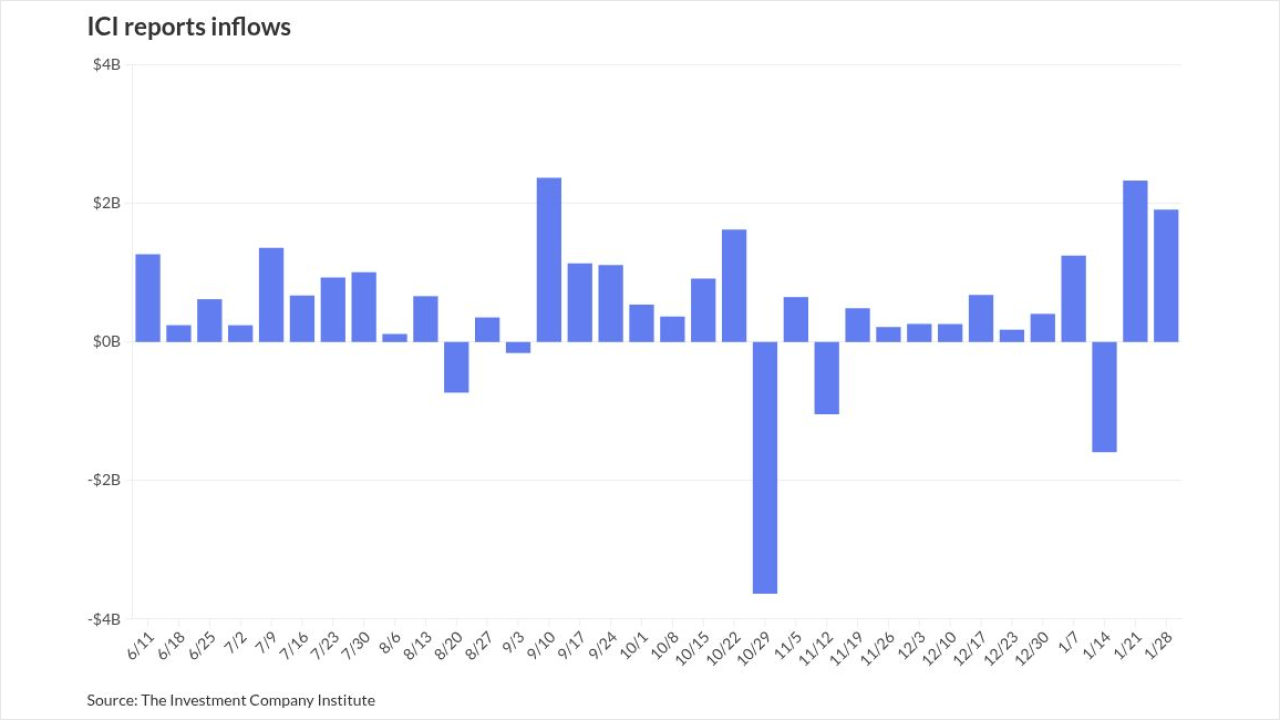A new Democratic majority in the House of Representatives could mean an increased chance of a major infrastructure spending package, including a possible return of direct-pay bonds similar to Build America Bonds, according to lobbyists and market participants.
Democrats appeared to have seized control of the House as votes were tallied Tuesday night, while Republicans looked poised to maintain control of the Senate multiple news organizations concluded as the night wore on. The New York Times and CNN were among those to call the House for Democrats and Senate for Republicans.
The split control of Congress might bode well for progress on federal infrastructure legislation, because there is common ground between the two parties on that issue. But the issue of how to pay for the agreed-upon spending could keep anything from materializing.
While both sides of the aisle champion infrastructure investment as a priority and a necessity, progress on major federal funding initiatives has long been hampered by disagreements on how to pay for that spending. Republicans have generally favored approaches that don’t require tax increases, such as incentivizing private investment or using repatriated money from overseas.
Democrats, conversely, have generally favored increased government involvement and tax increases. The Congressional Progressive Caucus’ fiscal year 2019 budget outline, for example, calls for $2 trillion of infrastructure investment paid for largely by a $10.25 per-barrel tax on oil companies.
President Trump campaigned on an ambitious trillion-dollar infrastructure agenda that ended up taking a back seat to both tax reform and Republican efforts to reverse the Affordable Care Act and end “Obamacare.”
Both sides were discussing infrastructure again in the run-up to Tuesday’s election, with Vice President Mike Pence saying in a televised interview only days ago that Trump plans to push an infrastructure bill when the new Congress convenes next year and that the administration believes it can work in a bipartisan way to get that done. Democratic leaders, such as Rep. Steny Hoyer, D-Md. who serves as minority whip, have also said publicly in recent weeks that infrastructure would be a top priority for a new Democrat-controlled House.
“Although there may be differences between parties on other issues, infrastructure improvement is a fairly ubiquitous policy priority in this Congress,” said Emily Brock, director of the Government Finance Officers Association’s Federal Liaison Center.
Market participants said they expect that a Democrat-controlled House will likely move quickly to try to incentivize infrastructure spending at the state and local level, in part by reviving the Build America Bonds program under another name.
“I think with a Democratic controlled House, we have more of a chance to see legitimate infrastructure legislation,” said Jeffrey Lipton, head of municipal research and strategy at Oppenheimer & Co. “I think if you don’t seriously address the infrastructure crisis in this country, I think it then becomes an issue of national security.”
Lipton said he believes a split Congress could work collaboratively on infrastructure.
“I do think there is bipartisan support among both Democrats and Republicans to get some sort of infrastructure package,” he said.
Lipton said he would not be surprised to see Democrats attempt to revive the Build America Bonds program under a new name. BABs were created under the Obama stimulus package in 2009 to incentivize infrastructure investment. The bonds are federally taxable to bondholders, but proved very attractive to issuers because the U.S. Department of the Treasury pays to the issuer a subsidy of 35% of the interest owed to investors.

BABs could also be issued as tax-credit bonds, but that version didn’t catch on with issuers.
From the inception of the program in April 2009 to when it expired on Dec. 31 2010, there were 2,275 separate BABs issues in all 50 states and two territories totaling more than $181 billion.
But Republican lawmakers quickly to dislike BABs, viewing them as a wasteful and unnecessary government subsidy. Furthermore, the subsidy payments subsequently became subject to mandatory sequestration cuts in excess of 6%. The sequestration issue would need to be worked out if the Democrats wanted to push a new direct-pay bond structure, Lipton said.
Matt Posner, founder of The Impact Coalition which analyzes public infrastructure projects, said he would expect to see House Democrats pushing BABs in the first or second quarter of next year.
“I wouldn’t be surprised to see some sort of new infrastructure bill that includes that,” Posner said.

Jim Tymon, chief operating officer at the American Association of State Highway and Transportation Officials, said he believes there is generally bipartisan support for certain public-private partnerships as one tool for funding infrastructure development, though it is not a silver bullet. A major unanswered question is whether Congress will muster the political will to raise the federal gas tax, he said.
The gasoline tax-fueled Highway Trust Fund that has historically paid for federal roadways has been spending more than it brings in for a decade now. With the federal gas tax stuck at 18.4 cents since 1993 and increases to it considered a political non-starter on Capitol Hill, the fund could become insolvent within three years.
But raising the gas tax is considered a political third rail by many, and has not been seriously attempted in recent years. Many states have raised their gas taxes in recent years, however. Tymon said that infrastructure having more bipartisan support than tax reform or healthcare issues could bode well for it being a top issue in the new Congress.
“If they’re looking for an easy win,” Tymon said, “They can probably come together.”
Brett Bolton, vice president of federal legislative and regulatory policy at Bond Dealers of America said his group sees opportunity to advance infrastructure legislation beneficial to the muni market regardless of who is leading the House.
“The opportunity exists regardless,” Bolton said. “Bonds are still going to be a cornerstone.”
Michael Decker, a managing Director and co-head of munis at the Securities Industry and Financial Markets Association, said SIFMA is prepared to work with the new Congress and its new leadership.
“We look forward to working with the new makeup of the House and Senate to help advance policy to ensure sound, robust, safe and efficient capital markets,” Decker said. “SIFMA encourages ongoing commitment to infrastructure investment which will help spur job creation and economic growth. SIFMA has long advocated for meaningful cooperation among public and private infrastructure developers and investors, including the expansion of private activity bonds. We also support leveraging the great work states and localities do in building and maintaining our infrastructure. A partnership among federal, state and local governments and private investors will ease the burden on the cash-strapped federal government by leveraging our capital markets to create expanded financing options.”
Brock said both Democrats and Republicans should appreciate the opportunity the capital markets provide.
“We have a very active, healthy municipal bond market that provides low-cost access to capital,” Brock said. “All members of Congress should be proud of this fact. We also now have plenty of opportunities to educate members of the value of tools recently lost. We look forward to working with new and tenured members to advance legislation that would provide cost savings, ease access to capital and fund programs that are a staple to many communities across the United States.”





